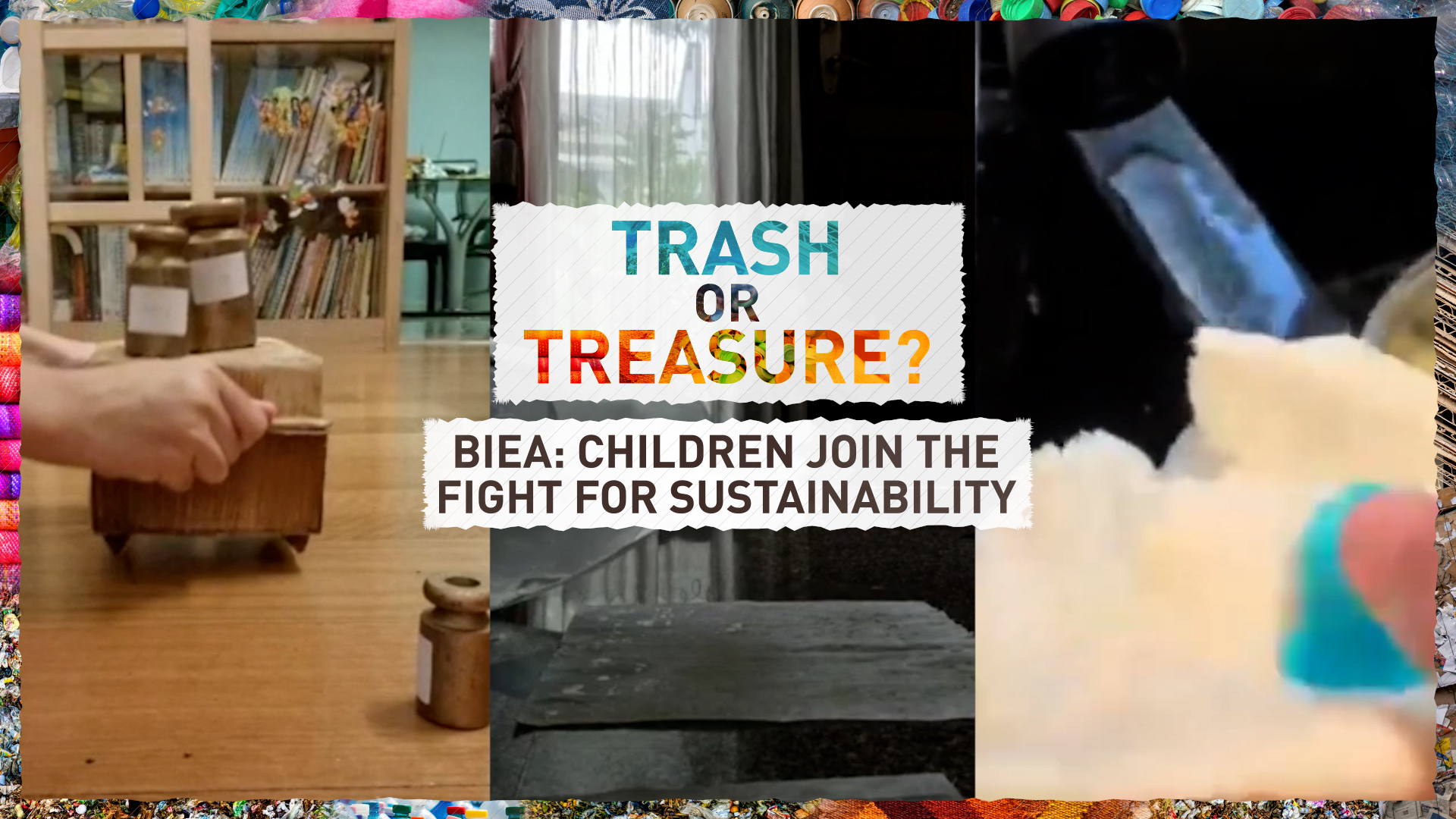03:21

Hundreds of children from 36 countries across the globe have designed prototypes for environmentally-friendly food packaging, in an attempt to reduce the impact of climate change.
The challenge, set by the British International Education Association (BIEA), was to invent biodegradable containers to replace plastic wrappings for the mid-day meal.
Alex Holmes, head of STEM (science, technology, engineering and mathematics) at the BIEA, says the task was adapted so that even those living under COVID-19 restrictions could take part.
"We were very aware that young people around the world were in different stages of the pandemic," she tells CGTN. "Some were locked down, some could go to school, some had no access to resources.
"We chose lunch packaging because we thought that it would give more opportunity to young people in whatever stage of the pandemic they were."

Children from 36 countries took part in the challenge. /BIEA
Children from 36 countries took part in the challenge. /BIEA
In all, 43 teams reached the finals with innovative designs made from banana leaves, seaweed, bamboo and other natural materials they found growing near their homes. Each team carried out detailed experiments to produce the wrapping and test it for durability and water resistance, before writing reports on their findings.
Judge Ginny Smith says she was fascinated to see how the inventions reflected the local culture of the many countries involved. She hopes the competition will act as a springboard, setting many more young people off on a STEM career.
"Science, technology, engineering and maths are a huge part of the world," she says. "We need lots more STEM-literate people to go into jobs that use those fields but also, even if you are not going to go into those fields, understanding the scientific process gives you a good grounding in critical thinking, to looking at sources and finding out which ones are reliable, and these are all really useful skills."
The students, who were aged from 9 to 17, also learned about the damaging impact of plastic waste on the planet. Many reported seeing for themselves pollution on beaches or reduced air quality around their homes.
The Grand Prize went to Team Curious, from Malaysia, who produced food and drink containers from corn starch and palm fibers. They hope their invention will be a small step towards solving the climate issues facing their generation.
This story is part of the CGTN Europe Trash or Treasure special – a look at the challenges, innovations and solutions around Europe's waste disposal.

